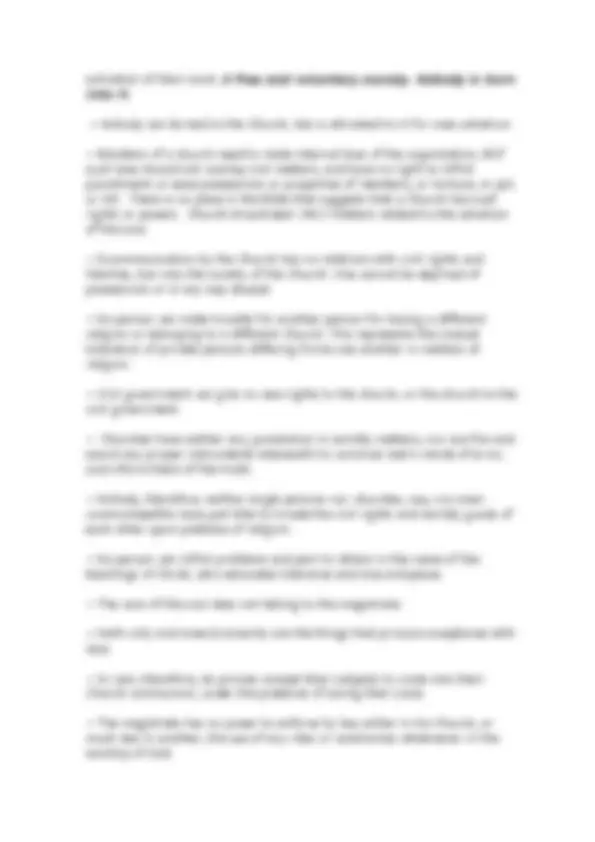Ve rs io n: 1 Feb 2007
Out line of John Locke’s “A Letter Concerning
Tolerati on”
• Early , simpl e way o f C hr is tian Churc h: The earliest manifestation of a
“Christian Church” involved believers of Christ meeting to share information
and to worship together (there were many different Jewish sects at that time,
and this was just another such group). They had no political power or
influence on others outside of their group. However, after Christianity was
allowed to function openly in the Roman Empire, and then became the
dominant religion after the Edict of Milan in 313 by Emperor Constantine
(Agustus; 272-337), and the First Council of Nicea in 325, it became an ever-
growing entity that ended up far different than its humble origins. In the
earlier times “the Church” was mainly a place:
• for believers to meet for worship;
• to share feelings and belief with other like-minded people;
• to hold the celebration of marriage with the blessings of the group:
• a way for children to be baptized into the society of the believers.
•There was much (peaceful) diversity in thinking. A religion of love, in
contrast to the fickle, cruel, despotic God of the Old Testament.
• Expan ding po wer o f chu rc h: However, over time the institution of the
Church was able to expand into politics and civil governance, while accumulating
a huge amount of wealth in the form of property, gold, art and other precious
objects. Thus, what started out as a group of like-mind people worshiping
together became something very different:
• Making a business of selling “indulgences”, by which priests and the
Church profited by using their influence (with God) to cure people, or
obtain things for them on Earth, and especially in the afterlife.
• Being closely related with civil government (magistrates) on every level
of society, from the small villages to the courts of kings.
• Being able to influence or even dominate the actions of civil courts
involving: property, possessions, disputes among people of the
community, punishments for theft, injury to others, and murder.
• Perhaps even worse was introducing civil laws based on religious
doctrine, thus making it possible to criminalize differences of opinions
from civil doctrine, schisms, heresy, and strange matters involving spirits,
demons and witches.












